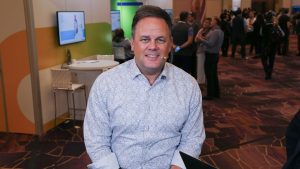DARPA announces project to build evolving software that never dies
![]() The United States’ leading madcap military boffins over at the Defense Advanced Research Projects Agency (DARPA) have announced a plan to create self-adapting software that can live for over one hundred years without becoming obsolete.
The United States’ leading madcap military boffins over at the Defense Advanced Research Projects Agency (DARPA) have announced a plan to create self-adapting software that can live for over one hundred years without becoming obsolete.
The project is being dubbed “Building Resource Adaptive Software Systems”, or BRASS, and aims to build an entirely new software stack that can absorb new hardware technologies and make use of engineering advancements to update itself continuously, without the need for any major rewrites.
DARPA is talking about creating adaptive, evolving software which will ensure data stored in the present will remain accessible hundreds of years later. In addition, it will ensure the nation’s military computer systems will function just as well as they do now, well into the future.
“BRASS advances will necessitate integration of new linguistic abstractions, scalable and compositional formal methods, and resource-aware program analyses to discover and specify application intent; program transformations triggered to adapt applications to salient resource changes; and, new systems designs to monitor ecosystem behavior,” stated DARPA.
To achieve this, “BRASS seeks new, clean-slate approaches to enable automated discovery of relationships between computations and the resources they utilize, along with techniques to safely and dynamically incorporate optimized, tailored algorithms and implementations constructed in response to ecosystem changes.”
Suresh Jagannathan, DARPA program manager, explained a little about the motivation for the project. He said that while the evolution of technology is inevitable, the corresponding changes in data formats, input characteristics, libraries and protocols often undermine the behavior of existing applications. Therefore the goal of BRASS is to guarantee critial apps can function correctly and efficiently even as the technology landscape evolves, something he describes as a “formidable challenge”.
“Failure to respond to these changes can result in technically inferior and potentially vulnerable systems,” Jagannathan said. “Equally concerning, the lack of automated upgrade mechanisms to restructure and transform applications leads to high software maintenance costs and premature obsolescence of otherwise functionally sound software.”
Jagannathan believes that software’s inability to seamlessly adapt to new hardware and conditions causes a negative impact on economic productivity. In addition, he said it makes it almost impossible to develop secure and resilient infrastructure for the long-term, which means we risk losing access to important digital content as the software used to generate and interpret it becomes obsolete.
BRASS outlines a number of objectives:
- Reduce the time to repair vulnerabilities and port useful functionality in complex systems from human time to machine time;
- Allow various syntactic and semantic forms of adaptation to be applied over large code bases;
- Enable adaption to be generally applicable for a significant fraction of the code base comprising an application and the underlying ecosystem;
- Sufficiently reduce analytics and runtime monitoring overhead to enable adaptive solutions to be effective in continuously operational, deployed environments.
According to DARPA, there will be three separate, 16 month phases in the BRASS program. The agency plans to hold a Platform Demonstration Workshop at the end of each phase, providing an opportunity to evaulate the program’s objectives.
Photo Credit: Nouveau CHUM via Compfight cc
A message from John Furrier, co-founder of SiliconANGLE:
Your vote of support is important to us and it helps us keep the content FREE.
One click below supports our mission to provide free, deep, and relevant content.
Join our community on YouTube
Join the community that includes more than 15,000 #CubeAlumni experts, including Amazon.com CEO Andy Jassy, Dell Technologies founder and CEO Michael Dell, Intel CEO Pat Gelsinger, and many more luminaries and experts.
THANK YOU













